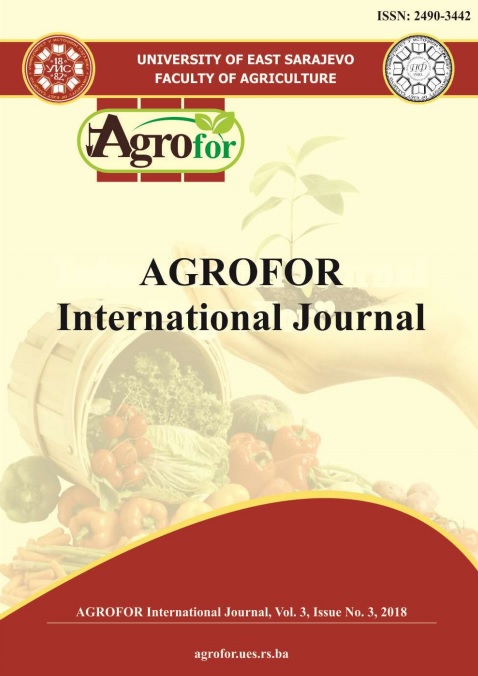THE EFFECT OF COMPACTION ON WATER RETENTION IN THE VINEYARD’S ROOT ZONE
DOI:
https://doi.org/10.7251/AGRENG1803039KAbstract
In vineyards, frequent machinery traffic between the vine rows results in spatial
and temporal changes in soil structure that affect the water retention properties in
the root zone. Compaction effects on the soil water characteristic curve in the root
zone were evaluated in three vineyards of different soil types (a Cl, a ClL, and a
SiL with increased sand percentage). Soil cores were collected from a) the tilled
soil on the vine-row and b) the compacted soil of ruts produced by machinery
traffic within the inter-row distance. Sampling was carried out at two depths (0-
15cm and 15-30cm) and at two time intervals, the first in spring when agricultural
vehicles had accomplished 6-8 passes and the second in autumn, after ca 20 passes.
The results of the first sampling in the beginning of the cultivation period revealed
that compaction increased soil bulk density of the three vineyards in both depths.
Drainage pores collapsed to smaller ones while plant available water and textural
porosity increased. The effect of compaction was more pronounced on the surface
(0-15 cm) of the more fine textured soils. In autumn, at the end of the cultivation
period, it was found that the soil water retention characteristics in the vineyards
root zone were not substantially further affected by machinery traffic. We
concluded that machinery traffic impact on the studied properties was intense in
spring when the soil in vineyards was loose from tillage before the cultivation
period and had temporally increased moisture content which results in decreased
strength.

